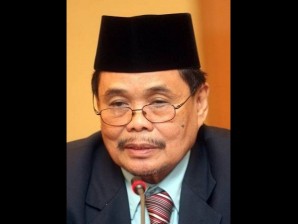MANILA, Philippines — Be not afraid of the Bangsamoro.
This was the message delivered by Mohagher Iqbal, chief peace negotiator of the Moro Islamic Liberation Front, to the Filipino people in an impassioned speech before the 75-member ad hoc committee of the House of Representatives deliberating on the draft Bangsamoro Basic Law.
“The Bangsamoro is the sum of our hopes and dreams. It may mean nothing to you. But it is the whole world to us,” he told the lawmakers.
The committee, chaired by Cagayan de Oro City Representative Rufus Rodriguez, began discussions on the bill Wednesday in a meeting that covered a wide range of issues, including a suggestion to include a provision categorically stating that the new Bangsamoro entity would not secede from the Philippine republic.
The “no secession” proposal by Cavite Representative Elpidio Barzaga Jr., which he later withdrew, elicited negative reactions from the government panel that negotiated a peace agreement with the MILF and some lawmakers who said that while there was nothing wrong with it, it might invite ill will.
Presidential peace adviser Teresita Deles said the entire draft of the Bangsamoro Basic Law was founded upon the premise that the Bangsamoro entity would remain part of the Philippines, as stated in Article 3, Section 1 of the bill.
She said she saw no problem in Barzaga’s proposed provision but the government panel would rather not see its inclusion. “Certainly that will be accepted but we prefer that it not be added. It questions the motives of why we’re here,” she said.
Anak Mindanao Representative Sitti Djalia Turabin-Hataman said she was slighted by the implications of Barzaga’s proposal.
“As part of the Bangsamoro people, I find it a little offensive to include that statement. It proceeds from an impression that we’re a rebellious people,” she said.
“We have to be sensitive [to the Moro people]…. we do agree we’re part of the Philippines,” said Hataman, wife of Governor Mujiv Hataman of the Autonomous Region in Muslim Mindanao.
But Barzaga insisted that a guarantee of some kind would be necessary to ensure the sovereignty of the Philippine state.
“As a true blooded Filipino, I want to guarantee the integrity and integration of the Philippines. That’s my opinion. As a lawyer, I don’t see a problem with that,” he told the body.
After a brief suspension of the proceedings, Capiz Representative Fredenil Castro asked Iqbal if the MILF would adopt Deles’ response to Barzaga’s questions.
Then the Cavite representative interrupted Castro’s questioning, informing the committee that he was withdrawing his comments regarding secession, a move that was applauded by some members of the audience.
But Castro said the question still needed to be asked since there were constitutional issues raised by Barzaga’s initial inquiries. He repeated the question to Iqbal.
Iqbal replied: “This is a very difficult question. Damned if you do, damned if you don’t. I will not comment.”
Castro, however, kept prodding Iqbal to give a definite answer, at one point suggesting that the latter’s “shying away from the question” indicated that there was no meeting of the minds between the government and MILF panels.
The MILF panel chief then gave a long explanation of the process that the draft BBL had gone through, from the long years of armed conflict in Mindanao to the period of negotiations, and the final draft that the Office of the President went over again.
“In short, what I’m saying is on this proposed BBL… we’re just a junior partner. It was the Office of the President that really paved the way for the transmission of the BBL to Congress. This is a pet project of the President of the Philippines,” he said.
Later on, Deles clarified Iqbal’s statement, saying the MILF negotiator only meant that the revisions introduced by the Office of the President to the draft of the Bangsamoro Transition Commission resulted from an “understanding between the OP and the MILF.”
This means “it’s the OP that takes the lead.”
Iqbal’s reluctance to respond to Barzaga’s first question, according to Deles, only showed that the “OP takes the lead here.” “This is priority legislation of the OP, [which is responsible] for presenting it and defending it,” she said.
But she stressed that this was a joint submission of the MILF and the government peace panels.
“Every line was agreed upon by the two parties… The two parties stand by the BBL, which is why there was only one presentation. We’re on the same platform,” Deles said.
In his opening statement, Iqbal sought to ease concerns that the proposed Bangsamoro law giving greater political and economic autonomy to Muslims in Mindanao would lead to the breaking up of the Philippine state.
He also warned against people who sow such fears.
These people, he said, aim to stop the establishment of the new Bangsamoro entity and take advantage of deeply held prejudice against members of the Islamic faith.
“They will use words like ‘dismemberment of the Republic,’ ‘sellout,’ ‘violation of the Constitution,’ ‘surrender,’ ‘state within a state,’ and even a ‘ploy for eventual independence’.”
“To all these we say: Be not afraid. To the Filipino people: Be not afraid,” said Iqbal, who sought permission to “speak plainly and from the heart.”
“Instead of dismemberment of the Republic, the Bangsamoro will further unite our peoples. There shall be no state within a state. The Philippine state shall remain sovereign,” he said.
Iqbal said the Bangsamoro people wished only to govern themselves.
“In the coming days, Congress will be asked to render judgment on the proposed BBL. You will be asked: Hope or fear? It is my prayer: choose hope over fear. Let us break free from this endless cycle of poverty, insecurity and malgovernance.”
“Let us choose hope. Let us build the Bangsamoro,” Iqbal said.
RELATED STORIES
MILF chief negotiator: ‘Our enemy is oppression not PH gov’t’
MILF chief negotiator hurt by revisions of draft Bangsamoro charter
